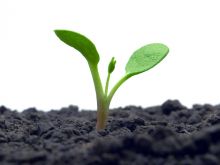Lifestyle education for development in a nutshell
Lifestyle education for development means that each and every one of us can contribute to global development and global aims such as the Millennium Development Goals and others. And so can Young Modern Performers, as well.
Not everyone is an activist by nature! Contribution can be very different for each and every person. Coming from a development NGO we often dream of people becoming engaged with spending time and participating in events. However, for many groups in society this is not an option. May it be lack of time, lack of interest in personal interaction with others on this topic, and/or lack of interest in permanent commitment - there are many reasons. It is a very important acknowledgement for us working in development that of course not everyone, and especially not the YMPs, are willing to become political activists, become engaged in an NGO, go to demonstrations for the GCAP, or other forms of active support of the MDGs. But it would be rather fatal to think that these social groups are lost for development topics and not worth being addressed by us with development education.
Still, there are many other ways to contribute to the development topics without joining a civil society group or movement. These can be very simple things that also YMPs can change in their everyday habits. There are many interdependencies between everyday personal lifestyles at home and development topics. Thinking global involves acting local! Personal lifestyles can be aligned to foster development and strengthen the Millennium Development Goal process. Drinking fair trade coffee contributes to a decent income for small-scale coffee farmers, producers and workers in developing countries. Buying labeled clothing can prevent child labor in textile production in South East Asia. Riding a bicycle for short distances and traveling by train instead of taking cheap flights can reduce the personal carbon dioxide footprint. These are just some examples of the numerous possibilities for a personal involvement in MDGs by changing everyday lifestyle basis.
Everyone can still contribute!
Socially trendsetting groups like YMPs who are aware of the MDGs and choose to adapt their lifestyles can be a most important multiplier group for development topics.
Important areas of possible personal change that we can promote as NGOs towards our target groups are:
How to put the message to Young Modern Performers?
To reach out to YMPs, we found out during our actions that certain general tips are useful. When trying to “sell” our message about changing lifestyles to groups like the YMPs it can be helpful to combine it with other nice side effects that come with a change in lifestyle for development - like, for example:
-Sustainable lifestyle is becoming a trend
-Personal benefit in terms of flexibility of time
This does not mean that groups like YMPs are not interested in moral responsibility for global development by their actions. It just means that we can boost support by also emphasizing other priorities of the target group. To further increase support for a change of lifestyle we can moreover give very concrete information on what to do. Advice like this will make it easier for the target group to change their course of action:
-Information on pages that inform about what ecological car to buy
-Information on where to find fair trade products
-Information on supporting development initiatives by internet
-Information on which computer to buy next
-Information on how to reuse old cell phones
You will find much other concrete information that you know of and which is useful for your audience.
 Alexfiodorov ©2009
Alexfiodorov ©2009  © SXC-Photo by LN
© SXC-Photo by LN